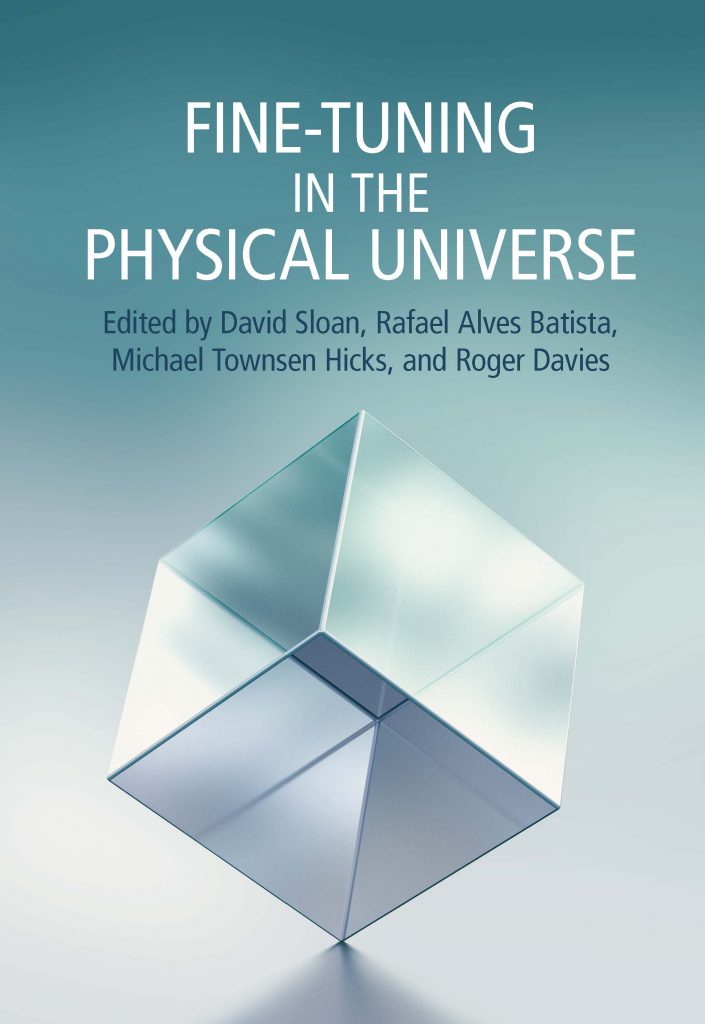
We only have one universe; could features of it be unusual, or surprising? Questions of fine-tuning ask this about our most fundamental theories. On the face of it, the existence of life, complexity, and structure in our universe seems to be lucky or to call out for explanation. When we look more closely, the physical causes of these important phenomena appear to be balanced on a knife-edge. Fine-Tuning in the Physical Universe formulates these questions and explores the answers in the context of many sub-disciplines of physics.
The standard model of cosmology includes both apparent surprises and unexpected coincidences. The value of the cosmological constant, which determines the rate of the universe’s expansion, is much smaller than one would expect from the energy of the quantum vacuum. The asymmetry between matter and anti-matter is just right to deliver complex structure. And the fine-structure constant perfectly balances the nuclear forces to allow stars to form and create an extensive menu of heavy elements. If any of these had been different, the universe could have lacked matter, galaxies, stars, planets, or the complex chemistry necessary for life. But just how much do these interesting features (complexity, large-scale structure, or life) depend on the initial conditions of the universe, or the constants in our physical laws? And how natural are their actual values? These questions are difficult to approach, but they are not unanswerable. This volume looks closely at the physical processes that led to our galaxy, solar system, complex chemistry, and biology, each in exquisite detail.
Our volume opens with a general discussion of fine-tuning, led by Mario Livio, Martin Rees, and Bernard Carr. It then approaches the meat of the subject, cosmological fine-tunings, with Jerome Martin considering the inflationary stage of the universe, Gary Steigman and Robert Scherrer delving into the matter/antimatter asymmetry, Adrianne Slyz examining the tunings involved in structure formation, and John Peacock assessing observer selection and constants of cosmology’s standard model. It then turns to particle physics with Giulia Zanderighi, and asks how, and to what degree, are the constants of particle physics tuned to allow for the formation of stars — Jean-Philippe Uzan discusses our great nuclear generators, and Rocky Kolb considers what we should expect from the dark sector. The book concludes with those features of physics which most directly address our own biology, slowly zooming in by looking at the factors that underlie star and galaxy formation, the creation of life-permitting solar systems like our own, and the epochs in which life can survive. In addition to addressing the fine-tuning of the universe as a whole, this section lets us ask more directly how likely life is to appear in different spatial or temporal parts of our own universe. Finally, George Ellis, Jean-Philippe Uzan, and David Sloan look at how closely life itself, and biological molecules, depend on the microphysical constants of the standard model. Could life have existed if physics were even a little different?
If our theory tells us that the universe is fine-tuned (for complexity, life, or something else) how should we react? Our authors suggest a number of responses. First, we could see this as a problem for our theory. If the theory tells us that our evidence is unlikely, that just means we have evidence against the theory. But often there is no better theory available–at least not yet. So on one view, apparent fine-tunings are hints, whispered to us from our future physics, breadcrumbs on the trail of a better account.
But that is not the only reaction we could have. We could also expand the theory in ways to make the evidence more likely. This way lies the multiverse, discussed by John Peacock. If the universe is big enough, even the most unlikely events will happen somewhere. Since observers like us can only exist in those rare regions with complexity (and of course life), we can explain the fact that we see these unlikely outcomes by the fact that observers, by existing, select them. But this explanation is only satisfying if we have some additional reason to believe in the multiverse: a possibility discussed by a few of our chapters.
Other explanations of our unlikely world beckon as well. Bernard Carr argues that some of these, since they posit unobservable entities, fall less into the realm of science and more into the realm of metaphysics. Since our volume is focused on the physics of fine-tuning, it neatly dodges questions about extra-scientific explanation. But philosophers, theologians, and others whose interests lie in that direction would benefit from looking at the target of their explanation more closely, and we hope Fine-Tuning in the Physical Universe has something to offer them as well.

Title: Fine-Tuning in the Physical Universe
Edited by: David Sloan, Lancaster University; Rafael Alves Batista, Radboud Universiteit Nijmegen; Michael Townsen Hicks, University of Birmingham; Roger Davies, University of Oxford
ISBN: 9781108484541
Published October 2020
Latest Comments
Have your say!